シワ・タルミの美容ケアFacelifts & Fillers
日本語は こちら
Injectables
Hyaluronic Acid Fillers
Injectable amount on each part:
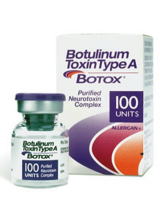 Botulinum toxin injection is the first treatment choice for expression lines, such as
forehead lines, frown lines, crowsfeet lines (smiling lines at outer corners of eyes), and lower eyelid lines. It is also used to suppress excessive perspiration of armpit and limbs and to reduce hypertrophic appearances of certain parts such as calf muscle( for slimming down), masseter muscle(chewing
muscle) in the lower jaw, and others. Recently Botox treatment is also
popular for treating dilated pores which is called MicroBotox, according to Japanese clinics' terminology.It is injecting micro amounts
of Botox within skin layer in a wider area such as cheek and nose to stop
sebum fats secretion through pores.
Botulinum toxin injection is the first treatment choice for expression lines, such as
forehead lines, frown lines, crowsfeet lines (smiling lines at outer corners of eyes), and lower eyelid lines. It is also used to suppress excessive perspiration of armpit and limbs and to reduce hypertrophic appearances of certain parts such as calf muscle( for slimming down), masseter muscle(chewing
muscle) in the lower jaw, and others. Recently Botox treatment is also
popular for treating dilated pores which is called MicroBotox, according to Japanese clinics' terminology.It is injecting micro amounts
of Botox within skin layer in a wider area such as cheek and nose to stop
sebum fats secretion through pores.

 forehead botulinum toxin injection before/after
forehead botulinum toxin injection before/after
downtime: injection redness for few hrs., sometimes bruises might appear that takes 1wk. to fade away
Botulinum toxin has plenty of brands worldwide, and the most famous one is the original Botox brand from Allergan company.
Other 4brands are approved by the FDA and one of them called Dysport is available in our clinic. It is more like a generic drug of Botox from Ipsen, a British company. While Botox own 50%of the share in the US, Dysport comes nearly 50%, according to recent statistics.
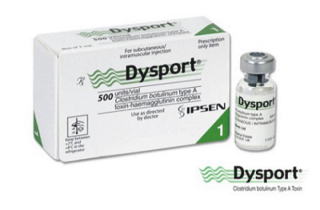
Botulinum treatment shows its effect at the earliest on the 2-3rd day, sometimes may take a week, and completes around a 2-week period. 3−4 months later effect may start fading and might completely go away around 6- 8th month.
Rarely seen allergic reaction might be observed partly on the area injected. Pregnant or expecting to be pregnant individuals are not good candidates for this treatment.
Pricing
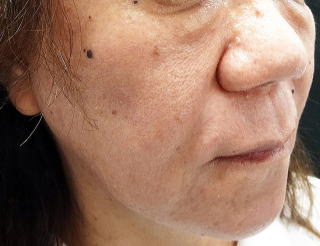
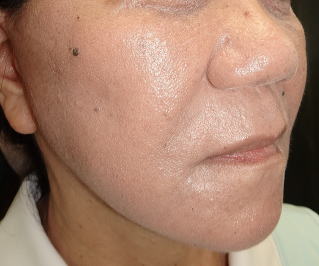
deep plane full facelift before after
downtime: swelling&bruises last for 2to3 wks., bandage&band compression needed for at least 5d.
Especially the Deep Plane Full Facelift, the procedure which undermines or undercuts through the deep plane located underneath the SMAS(superficial muscular aponeurotic system) at the cheek part and the platysma band(muscular drape along the neck). Upon undermining this layer widely, 4 ligaments that fasten the skin side to the deeper facial muscles are also cut and released to fascilitate lifting of the SMAS-platysma complex. This procedure differs a lot from the traditional skin-lifting method which just mainly pulls skin unnaturally tight. Deep Plane Facelift corrects skin loosening by repositioning skin to a new level, not by unnatural tightness, but in a natural fresh and younger skin appearance. The deep plane is a sparse or less-dense layer which is easier to undercut and open than the subcutaneous(subskin) level, the fact that requires this method just half length of the traditional approach wound along earfront. Removes not only cheek sags, but also chin and neck's. Incision in front of the ear is for cheek tightening, minimal incision at back of the ear is for the chin/neck sagging.
Actual method:
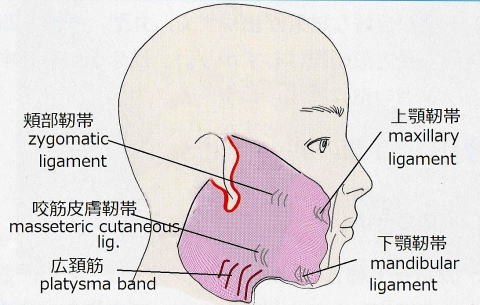
After minimal wound incision, extensive undermining or undercutting of the deep plane layer takes place, cutting through and releasing the retaining 4 ligaments: zygomatic ligament(retains upper cheek sag), maxillary ligament(fastens the persistent nasolabial folds or the "parentheses" that connects nose and upper lip), mandibular ligament and masseteric cutaneous ligament(the two which are responsible of the "bulldog" saggy jowls). The SMAS-platysma complex is pulled and tucked in the direction of temporal region and ear respectively. Then the skin flap is also pulled mildly and suspended in similar directions. Cheek fats are suctioned if needed to be reduced.
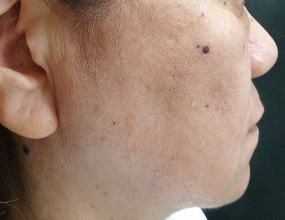
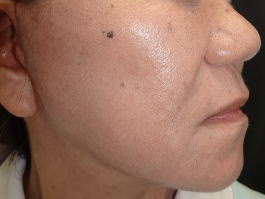
deep plane full facelift before after
downtime: swelling&bruises last for 2to3 wks., bandage&band compression needed for at least 5d.
Since suspension of the deeper SMAS and platysma tissues is already tight enough, unnecessary over-pulling of the skin can be avoided to achieve a natural youthful looks.
Even done in a wider manner, this procedure requires less wound approach, and this tactic needs about 2 hrs. or something, a big relief from the longer 3-4-hour traditional one.
Postoperatively, less swelling is anticipated, but still requires a night of bandage and band compression for the remaining days of a week.
1 week later is stitch removal, face washing might be possible 2-3 days postoperatively. Swelling and bruises take 1-2 weeks.
<cosmetic surgery simple tips>
This procedure is undoubtedly a challenging one for a cosmetic surgeon, ranking it as the 3rd barrier of his/her carreer. Similar to what is mentioned in lower eyelid Hamra method (details here ), it is the question of whether you can show a satisfactory effect or not that really gives you sleepless nights in starting this procedure during your early days. Pulling the structures gently might give you faster recovery but not a gentle outcome, and if you tighten it as hard as you can, surgical wounds sometimes take weeks to recover and can be stretched wider in not a good appearances. Over this you have to deal with your time also, because even the highly trained ones take 2-3 hours as the fastest to finish both sides, those who are not take the whole day or maybe the whole day is not enough, the reason why some do the other side on another day. This procedure is certainly the one that tests the surgeon's technique, speed, and refinement, somewhat like an event that requires all of what you have obtained or mastered, and sometimes even those you have not yet.
general anesthesia: \50000(with tax \55000)
The latest needle-free injector that introduces substances through skin
via an ultra-fine(0.03mm) stream of liquid.
Mainly used for local anesthesia.
Pricing (10% tax not included)
このページの先頭へ
Injectables
Hyaluronic Acid(HA) Fillers
Juvederm
Teosyal(Teoxane)
Restylane
Botulinum Toxin
Botox
Dysport
Facelift
Deep Plane Full Facelift
Deep Plane Mini Facelift
Thread Lift
N-COG Spiral
PDO Mono Thread Lift(Shopping Lift)
Silhouette Lift
Injectables
Hyaluronic Acid Fillers
Hyaluronic acid (HA) is the commonly used filler in today's cosmetic
care. The nasolabial folds(parentheses in between nose and lip), marionette lines (lines extending from lip corner to chin side), cheek lines, neck lunes, and other wrinkle lines are parts that are treatable with HA fillers.
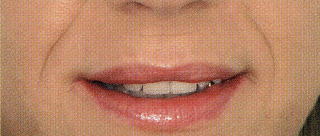
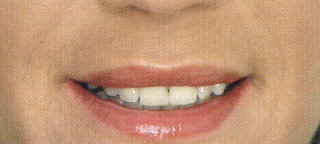
nasolabial folds HA filler injection before
after
downtime: puffy&tender for few days,
if bruises observed, take around 1 wk.
HA fillers are not only good for wrinkles but also capable of filling in dents of body parts or expanding parts that are needed to be expanded. Usually parst such as lips, sunken cheeks or cheekbones, sunken temples, chin, lower eyelid circles, lower eyelash base enhancement (a popular demand from Japanese clients) , and also breast for enlargement.
HA has been around for about 30 years, but still is a popular item among clients and doctors because of its convenience. In this long history of this filler, some alternatives sprang up, but did not succeed due to their unwanted effects. So that is why HA is still the main substance in use for these concerns.
HA filler has evolved to different kinds of brands and types, and the followings are the main brands used which names are already more well-known than the actual name of the substance 'hyaluronic acid' itself:
Juvederm
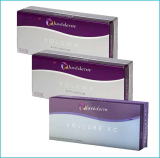
Juvederm is the most common name now among dozens of HA brands that exist because of its tactics in selling its products to the public. It is produced by the company called Allergan which is famous of its Botox brand.
Juvederm VOLUMA is the thickest in concentration among the line-up of the brand, then Juvederm VOLBELLA and comes Juvederm VOLIFT (named in the States as VOLLURE) as the thinnest of them all. These 3 are the newest generation of Juvederm, older one includes Juvederm Ultra & Ultra plus.
And recently, Juvederm released their newest product called VOLITE, a low-concentrated hyaluronic acid filler to treat neck's horizontal lines and facial fine lines and loosening, parts that require finer treatment for satisfactory results.
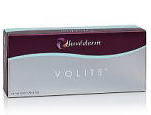
 neck Volite before/after
neck Volite before/after
 facial Volite before/after
facial Volite before/after
These new ones last longer than the old generation, reported to show effect for 1 to 1.5 years, though might vary in the amount injected.
Effect lasting period might be around a year but the actual HA substance stays in the tissue for around 5 years, while it is gradually excreted from the body. It is designed not to cause severe reactions to human body, but there are rare allergic reactions observed within this period of time. Reactions such as obvious lumps and redness of the injected area are the common symptoms. This can be dissolved and subsided by injecting HA dissolving solution called hyaluronidase.
Besides allergic reaction, skin and other tissue necrosis (death) are also the concerns of HA injection. When injected, HA rarely gets inside a blood vessel that may clog it and cause the problem. To avoid this, injection of the filler with blunt cannula is the best prevention available. If this side effect occur, a remedy using hyaluronidase is done to revive the damaged tissue.
Teosyal(Teoxane)
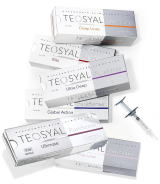
Teosyal is the most used hyaluronic acid filler lately. It has the longest lasting effect among the latest brands, produced by the Swiss company called TEOXANE.
Teosyal has a lot of options in its hyaluronic acid concentration and cross-linking technology. The most long-lasting RHA series, then more elastic Kiss series for lip filling, and the low-concentrated Redensity series for fine lines on neck and around eyes.

 cheek Teosyal RHA injection before/after
cheek Teosyal RHA injection before/after

 neck Teosyal Redensity injection before/after
neck Teosyal Redensity injection before/after
downtime: puffy&tender for few days, if bruises observed, take around 1 wk.
The longest effect sustainability observed in highly-concentrated products is around 1 to 2 years, though might vary in the amount injected.
Effect lasting period might be around a year or two, but the actual HA substance stays in the tissue for around 5 years, while it is gradually excreted from the body. It is designed not to cause severe reactions to human body, but there are rare allergic reactions observed within this period of time. Reactions such as obvious lumps and redness of the injected area are the common symptoms. This can be dissolved and subsided by injecting HA dissolving solution called hyaluronidase.
Besides allergic reaction, skin and other tissue necrosis (death) are also the concerns of HA injection. When injected, HA rarely gets inside a blood vessel that may clog it and cause the problem. To avoid this, injection of the filler with blunt cannula is the best prevention available. If this side effect occur, a remedy using hyaluronidase is done to revive the damaged tissue.
Restylane
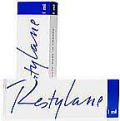
Restylane brand is the original producer of HA filler. Around 25 years ago, a Swedish company started the brand and, after that, has been taken over by an American firm. It is kind of being left behind by the famous Juvederm but still in vast use around the globe. It is reported to have a shorter effect duration than Juvederm, from 6 months to a year.
Restylane injection, same as Juvederm brand, needs careful observation of allergic reaction and tissue damage.


nasolabial folds HA filler injection before
after
downtime: puffy&tender for few days,
if bruises observed, take around 1 wk.
HA fillers are not only good for wrinkles but also capable of filling in dents of body parts or expanding parts that are needed to be expanded. Usually parst such as lips, sunken cheeks or cheekbones, sunken temples, chin, lower eyelid circles, lower eyelash base enhancement (a popular demand from Japanese clients) , and also breast for enlargement.
HA has been around for about 30 years, but still is a popular item among clients and doctors because of its convenience. In this long history of this filler, some alternatives sprang up, but did not succeed due to their unwanted effects. So that is why HA is still the main substance in use for these concerns.
HA filler has evolved to different kinds of brands and types, and the followings are the main brands used which names are already more well-known than the actual name of the substance 'hyaluronic acid' itself:
Juvederm

Juvederm is the most common name now among dozens of HA brands that exist because of its tactics in selling its products to the public. It is produced by the company called Allergan which is famous of its Botox brand.
Juvederm VOLUMA is the thickest in concentration among the line-up of the brand, then Juvederm VOLBELLA and comes Juvederm VOLIFT (named in the States as VOLLURE) as the thinnest of them all. These 3 are the newest generation of Juvederm, older one includes Juvederm Ultra & Ultra plus.
And recently, Juvederm released their newest product called VOLITE, a low-concentrated hyaluronic acid filler to treat neck's horizontal lines and facial fine lines and loosening, parts that require finer treatment for satisfactory results.

 neck Volite before/after
neck Volite before/after facial Volite before/after
facial Volite before/afterThese new ones last longer than the old generation, reported to show effect for 1 to 1.5 years, though might vary in the amount injected.
Effect lasting period might be around a year but the actual HA substance stays in the tissue for around 5 years, while it is gradually excreted from the body. It is designed not to cause severe reactions to human body, but there are rare allergic reactions observed within this period of time. Reactions such as obvious lumps and redness of the injected area are the common symptoms. This can be dissolved and subsided by injecting HA dissolving solution called hyaluronidase.
Besides allergic reaction, skin and other tissue necrosis (death) are also the concerns of HA injection. When injected, HA rarely gets inside a blood vessel that may clog it and cause the problem. To avoid this, injection of the filler with blunt cannula is the best prevention available. If this side effect occur, a remedy using hyaluronidase is done to revive the damaged tissue.
Teosyal(Teoxane)

Teosyal is the most used hyaluronic acid filler lately. It has the longest lasting effect among the latest brands, produced by the Swiss company called TEOXANE.
Teosyal has a lot of options in its hyaluronic acid concentration and cross-linking technology. The most long-lasting RHA series, then more elastic Kiss series for lip filling, and the low-concentrated Redensity series for fine lines on neck and around eyes.

 cheek Teosyal RHA injection before/after
cheek Teosyal RHA injection before/after
 neck Teosyal Redensity injection before/after
neck Teosyal Redensity injection before/afterdowntime: puffy&tender for few days, if bruises observed, take around 1 wk.
The longest effect sustainability observed in highly-concentrated products is around 1 to 2 years, though might vary in the amount injected.
Effect lasting period might be around a year or two, but the actual HA substance stays in the tissue for around 5 years, while it is gradually excreted from the body. It is designed not to cause severe reactions to human body, but there are rare allergic reactions observed within this period of time. Reactions such as obvious lumps and redness of the injected area are the common symptoms. This can be dissolved and subsided by injecting HA dissolving solution called hyaluronidase.
Besides allergic reaction, skin and other tissue necrosis (death) are also the concerns of HA injection. When injected, HA rarely gets inside a blood vessel that may clog it and cause the problem. To avoid this, injection of the filler with blunt cannula is the best prevention available. If this side effect occur, a remedy using hyaluronidase is done to revive the damaged tissue.
Restylane

Restylane brand is the original producer of HA filler. Around 25 years ago, a Swedish company started the brand and, after that, has been taken over by an American firm. It is kind of being left behind by the famous Juvederm but still in vast use around the globe. It is reported to have a shorter effect duration than Juvederm, from 6 months to a year.
Restylane injection, same as Juvederm brand, needs careful observation of allergic reaction and tissue damage.
Pricing
| without tax | with tax | ||
| Teosyal | RHA/Kiss series | \60000 | \66000 |
| Redensity series | \50000 | \55000 | |
| Juvederm | VOLUMA 1syringe1.0cc | \60000 | \66000 |
| VOLIFT 1.0cc | \60000 | \66000 | |
| VOLITE 1.0cc | \50000 | \55000 | |
| Restylane | 1.0cc | \40000 | \44000 |
| 0.5cc | \30000 | \33000 |
 Botulinum toxin injection is the first treatment choice for expression lines, such as
forehead lines, frown lines, crowsfeet lines (smiling lines at outer corners of eyes), and lower eyelid lines. It is also used to suppress excessive perspiration of armpit and limbs and to reduce hypertrophic appearances of certain parts such as calf muscle( for slimming down), masseter muscle(chewing
muscle) in the lower jaw, and others. Recently Botox treatment is also
popular for treating dilated pores which is called MicroBotox, according to Japanese clinics' terminology.It is injecting micro amounts
of Botox within skin layer in a wider area such as cheek and nose to stop
sebum fats secretion through pores.
Botulinum toxin injection is the first treatment choice for expression lines, such as
forehead lines, frown lines, crowsfeet lines (smiling lines at outer corners of eyes), and lower eyelid lines. It is also used to suppress excessive perspiration of armpit and limbs and to reduce hypertrophic appearances of certain parts such as calf muscle( for slimming down), masseter muscle(chewing
muscle) in the lower jaw, and others. Recently Botox treatment is also
popular for treating dilated pores which is called MicroBotox, according to Japanese clinics' terminology.It is injecting micro amounts
of Botox within skin layer in a wider area such as cheek and nose to stop
sebum fats secretion through pores.
 forehead botulinum toxin injection before/after
forehead botulinum toxin injection before/afterdowntime: injection redness for few hrs., sometimes bruises might appear that takes 1wk. to fade away
Botulinum toxin has plenty of brands worldwide, and the most famous one is the original Botox brand from Allergan company.
Other 4brands are approved by the FDA and one of them called Dysport is available in our clinic. It is more like a generic drug of Botox from Ipsen, a British company. While Botox own 50%of the share in the US, Dysport comes nearly 50%, according to recent statistics.

Botulinum treatment shows its effect at the earliest on the 2-3rd day, sometimes may take a week, and completes around a 2-week period. 3−4 months later effect may start fading and might completely go away around 6- 8th month.
Rarely seen allergic reaction might be observed partly on the area injected. Pregnant or expecting to be pregnant individuals are not good candidates for this treatment.
Pricing
| Botox | Botox | Dysport | Dysport | ||
| without tax | with tax | without tax | with tax | ||
| wrinkle lines | forehead | \18000 | \19800 | \10000 | \11000 |
| glabella(btw brows) | \18000 | \19800 | \10000 | \11000 | |
| crowsfeet | \18000 | \19800 | \10000 | \11000 | |
| lower eyelids | \18000 | \19800 | \10000 | \11000 | |
| nose bridge | \18000 | \19800 | \10000 | \11000 | |
| upper lip | \18000 | \19800 | \10000 | \11000 | |
| lower lip | \18000 | \19800 | \10000 | \11000 | |
| chin | \18000 | \19800 | \10000 | \11000 | |
| micro Botox | upper cheek | \50000 | \55000 | \30000 | \33000 |
| lower cheek | \50000 | \55000 | \30000 | \33000 | |
| neck(platysma) | \60000 | \66000 | \40000 | \44000 | |
| nose | \40000 | \44000 | \20000 | \22000 | |
| others5×5cm | \40000 | \44000 | \20000 | \22000 | |
| reduction/lift | slant eye correct. | \18000 | \19800 | \10000 | \11000 |
| alar reduc. | \18000 | \19800 | \10000 | \11000 | |
| nosetip elevation | \18000 | \19800 | \10000 | \11000 | |
| gummy smile correc. | \18000 | \19800 | \10000 | \11000 | |
| lip corner lift | \18000 | \19800 | \10000 | \11000 | |
| masseter muscle | \50000 | \55000 | \30000 | \33000 | |
| lower jaw+masseter | \80000 | \88000 | \50000 | \55000 | |
| sternocleidomastoid | \80000 | \88000 | \50000 | \55000 | |
| trapezius m | \100000 | \110000 | \70000 | \77000 | |
| calf m | \100000 | \110000 | \70000 | \77000 | |
| sweat control | armpits | \80000 | \88000 | \50000 | \55000 |
| palms | \100000 | \110000 | \70000 | \77000 | |
| soles | \120000 | \132000 | \80000 | \88000 | |
| forehead | \60000 | \66000 | \40000 | \44000 | |
| temples | \60000 | \66000 | \40000 | \44000 | |
| head/etc10×10cm | \60000 | \66000 | \40000 | \44000 | |
Facelifts


deep plane full facelift before after
downtime: swelling&bruises last for 2to3 wks., bandage&band compression needed for at least 5d.
Deep Plane Full Facelift
Even how filler/injectables, lasers, and thread lifts are evolving to a newer level, still surgery is the best procedure to correct loosening of the aging skin. Maybe in the future, a better-than-surgery non-surgical method comes out, but for the time being, surgical facelift still reigns.Especially the Deep Plane Full Facelift, the procedure which undermines or undercuts through the deep plane located underneath the SMAS(superficial muscular aponeurotic system) at the cheek part and the platysma band(muscular drape along the neck). Upon undermining this layer widely, 4 ligaments that fasten the skin side to the deeper facial muscles are also cut and released to fascilitate lifting of the SMAS-platysma complex. This procedure differs a lot from the traditional skin-lifting method which just mainly pulls skin unnaturally tight. Deep Plane Facelift corrects skin loosening by repositioning skin to a new level, not by unnatural tightness, but in a natural fresh and younger skin appearance. The deep plane is a sparse or less-dense layer which is easier to undercut and open than the subcutaneous(subskin) level, the fact that requires this method just half length of the traditional approach wound along earfront. Removes not only cheek sags, but also chin and neck's. Incision in front of the ear is for cheek tightening, minimal incision at back of the ear is for the chin/neck sagging.
Actual method:

After minimal wound incision, extensive undermining or undercutting of the deep plane layer takes place, cutting through and releasing the retaining 4 ligaments: zygomatic ligament(retains upper cheek sag), maxillary ligament(fastens the persistent nasolabial folds or the "parentheses" that connects nose and upper lip), mandibular ligament and masseteric cutaneous ligament(the two which are responsible of the "bulldog" saggy jowls). The SMAS-platysma complex is pulled and tucked in the direction of temporal region and ear respectively. Then the skin flap is also pulled mildly and suspended in similar directions. Cheek fats are suctioned if needed to be reduced.


deep plane full facelift before after
downtime: swelling&bruises last for 2to3 wks., bandage&band compression needed for at least 5d.
Since suspension of the deeper SMAS and platysma tissues is already tight enough, unnecessary over-pulling of the skin can be avoided to achieve a natural youthful looks.
Even done in a wider manner, this procedure requires less wound approach, and this tactic needs about 2 hrs. or something, a big relief from the longer 3-4-hour traditional one.
Postoperatively, less swelling is anticipated, but still requires a night of bandage and band compression for the remaining days of a week.
1 week later is stitch removal, face washing might be possible 2-3 days postoperatively. Swelling and bruises take 1-2 weeks.
<cosmetic surgery simple tips>
This procedure is undoubtedly a challenging one for a cosmetic surgeon, ranking it as the 3rd barrier of his/her carreer. Similar to what is mentioned in lower eyelid Hamra method (details here ), it is the question of whether you can show a satisfactory effect or not that really gives you sleepless nights in starting this procedure during your early days. Pulling the structures gently might give you faster recovery but not a gentle outcome, and if you tighten it as hard as you can, surgical wounds sometimes take weeks to recover and can be stretched wider in not a good appearances. Over this you have to deal with your time also, because even the highly trained ones take 2-3 hours as the fastest to finish both sides, those who are not take the whole day or maybe the whole day is not enough, the reason why some do the other side on another day. This procedure is certainly the one that tests the surgeon's technique, speed, and refinement, somewhat like an event that requires all of what you have obtained or mastered, and sometimes even those you have not yet.
Deep Plane Mini Lift
Minilift incision is done mainly just at ear's front to focus on the
tightening of the cheek skin.


deep plane mini lift before/after
downtime: swelling&bruises are observed for 1to2 wks., bandage&band compression needed for at least 5 d.
It's a mini version of the Deep Plane Full Facelift(mentioned above). Skin incision is just half of the full one, but ligaments cutting and SMAS plication are performed. Also fats are suctioned if needed.
Recovery time of mini lift is relatively minimal than that of full lift, including swelling and bruises withdrawal. Bandage and band compression can be shortened to about 3-4days. Stitch removal is done after a week.


deep plane mini lift before/after
downtime: swelling&bruises are observed for 1to2 wks., bandage&band compression needed for at least 5 d.
It's a mini version of the Deep Plane Full Facelift(mentioned above). Skin incision is just half of the full one, but ligaments cutting and SMAS plication are performed. Also fats are suctioned if needed.
Recovery time of mini lift is relatively minimal than that of full lift, including swelling and bruises withdrawal. Bandage and band compression can be shortened to about 3-4days. Stitch removal is done after a week.
Pricing
| without tax | with tax | ||
| Facelift | full | \650000 | \715000 |
| +cheek lipo | \680000 | \748000 | |
| mini | \450000 | \495000 | |
| +cheek lipo | \480000 | \528000 | |
| neck lift | \450000 | \495000 | |
| mini necklift | \200000 | \220000 |
 How to Treat Saggy Jowls
How to Treat Saggy Jowls
Thread Lift
 N-COG Spiral
N-COG Spiral
The latest thread lift available, using dissolvable sutures. The procedure is as easy as filler injection, meaning less swelling and
less needle points.
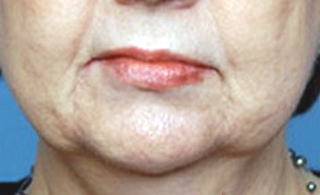
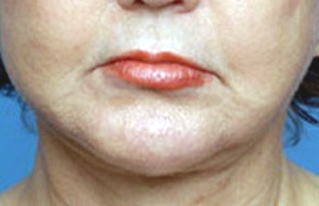
N-COG thread lift before/after
downtime: puffy for few days to 1 wk., if bruises present, need 1to2-wk. for recovery
Thread lift method is only recommended to the ones who are not willing to undergo surgery lifts or to those who just have minimal loosening. An alternative of surgical method, but its effect is not as good.
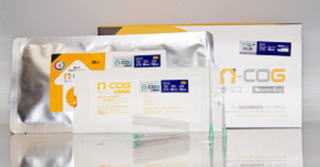
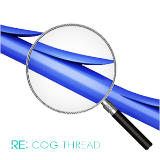
N-COG spiral has cogs or spikes along its thread that are aligned in spiral manner.
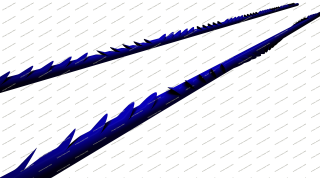
The procedure lasts for about minutes, as similar as filler injection's duration, and only deals with a small one needle point in each area(not including local anesthetic injections). It is made of dissolvable thread that dissolves within half a year, then the stimulated collagen production holds the effect for a while.
Why use dissolving thread instead of permanent one? It is because permanent threads had issues when they were used in the past. Permanent threads are usually used in other surgical method without any problem in leaving them inside the human body, but since thread lifting is done with a certain amount of threads under the very shallow skin layer, they sometimes cause problems later on such as infections, abcess, stretching sensation, or maybe noticeable thread rims on skin surface.
Just one visit, basically no check-ups and no stitch removal on coming days, and if you need more pulling, you just can add some touch-ups months later.
Actual method:
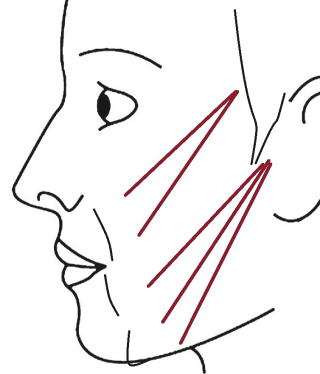 As shown in the diagram, 2 threads at the upper cheek and 3 near the
jowls, 10 in total of both sides. Threads are inserted below deeper level
of the subcutaneous(subskin) fat layer to tighten sagging facial skin by
suspending the SMAS(superficial muscular aponeurotic system, muscle fascia
or covering) at this level.
As shown in the diagram, 2 threads at the upper cheek and 3 near the
jowls, 10 in total of both sides. Threads are inserted below deeper level
of the subcutaneous(subskin) fat layer to tighten sagging facial skin by
suspending the SMAS(superficial muscular aponeurotic system, muscle fascia
or covering) at this level.
1 to 2 threads can also be used as a trial but cannot expect that much effect.
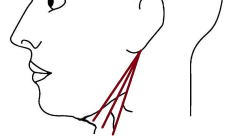
Neck sag can also be treated with this procedure with at least 2 or 3 threads at each side. The platysma band(muscular drape along the neck) is suspended by threads to stretch saggy neck.
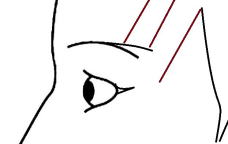
Fox Eye Lift or Cat Eye Lift can also be performed with thread lift. 2 to 3 threads on each side are needed to pull eye's end corner for a youthful image result.
Sometimes done together with Botox brow lift technique to enhance more fox-eye-like looks.
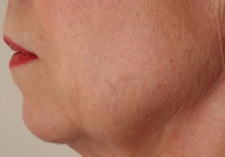
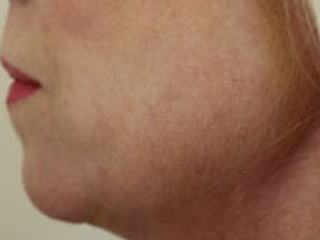
jowl&neck thread lift before/after
downtime: puffy for few days to 1 wk., if bruises present, need 1to2-wk. for recovery
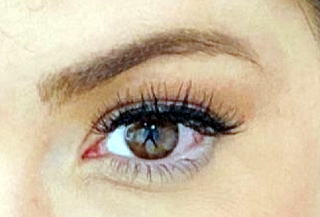
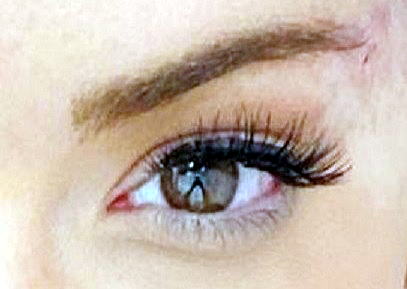
fox eye thread lift before/after
downtime: puffy for few days to 1 wk., if bruises present, need 1to2-wk. for recovery
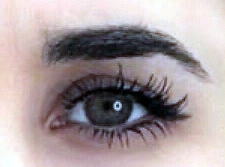
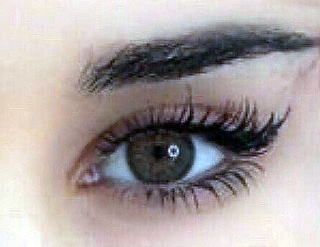
fox eye thread lift+Botox brow lift before/after
downtime: puffy for few days to 1 wk., if bruises present, need 1to2-wk. for recovery
 How Effective is N-COG Thread Lift
How Effective is N-COG Thread Lift
 PDO Mono Thread Lift(Shopping Lift)
PDO Mono Thread Lift(Shopping Lift)


N-COG thread lift before/after
downtime: puffy for few days to 1 wk., if bruises present, need 1to2-wk. for recovery
Thread lift method is only recommended to the ones who are not willing to undergo surgery lifts or to those who just have minimal loosening. An alternative of surgical method, but its effect is not as good.


N-COG spiral has cogs or spikes along its thread that are aligned in spiral manner.

The procedure lasts for about minutes, as similar as filler injection's duration, and only deals with a small one needle point in each area(not including local anesthetic injections). It is made of dissolvable thread that dissolves within half a year, then the stimulated collagen production holds the effect for a while.
Why use dissolving thread instead of permanent one? It is because permanent threads had issues when they were used in the past. Permanent threads are usually used in other surgical method without any problem in leaving them inside the human body, but since thread lifting is done with a certain amount of threads under the very shallow skin layer, they sometimes cause problems later on such as infections, abcess, stretching sensation, or maybe noticeable thread rims on skin surface.
Just one visit, basically no check-ups and no stitch removal on coming days, and if you need more pulling, you just can add some touch-ups months later.
Actual method:
 As shown in the diagram, 2 threads at the upper cheek and 3 near the
jowls, 10 in total of both sides. Threads are inserted below deeper level
of the subcutaneous(subskin) fat layer to tighten sagging facial skin by
suspending the SMAS(superficial muscular aponeurotic system, muscle fascia
or covering) at this level.
As shown in the diagram, 2 threads at the upper cheek and 3 near the
jowls, 10 in total of both sides. Threads are inserted below deeper level
of the subcutaneous(subskin) fat layer to tighten sagging facial skin by
suspending the SMAS(superficial muscular aponeurotic system, muscle fascia
or covering) at this level.1 to 2 threads can also be used as a trial but cannot expect that much effect.

Neck sag can also be treated with this procedure with at least 2 or 3 threads at each side. The platysma band(muscular drape along the neck) is suspended by threads to stretch saggy neck.

Fox Eye Lift or Cat Eye Lift can also be performed with thread lift. 2 to 3 threads on each side are needed to pull eye's end corner for a youthful image result.
Sometimes done together with Botox brow lift technique to enhance more fox-eye-like looks.


jowl&neck thread lift before/after
downtime: puffy for few days to 1 wk., if bruises present, need 1to2-wk. for recovery


fox eye thread lift before/after
downtime: puffy for few days to 1 wk., if bruises present, need 1to2-wk. for recovery


fox eye thread lift+Botox brow lift before/after
downtime: puffy for few days to 1 wk., if bruises present, need 1to2-wk. for recovery
Mono thread lifting uses absorbable PDO(polydioxanone) thread to tighten shallower layer of subcutaneous(underskin)
tissue, whereas N-COG thread(mentioned above section) works deeper. This
thread lifting is to tighten finer wrinkles and sags on cheeks and other
parts of face and body. Several number of tiny threads are introduced one
by one with a tiny needle, the reason why sometimes the procedure is called
cosmetic acupuncture. It is as simple as it sounds from its another Japanese name called 'shopping lift'.
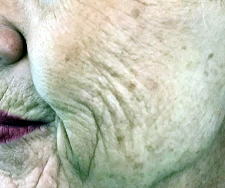
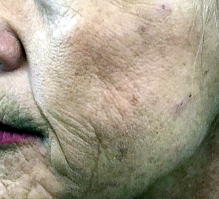
cheek shopping lift before/after
downtime: puffy for few days, if bruises present, need few d. to 1 wk. for recovery
PDO Mono Thead Lift is only recommended to the ones who are not willing to undergo surgery lifts or to those who just have minimal loosening. An alternative for surgery, but effect is not as good.
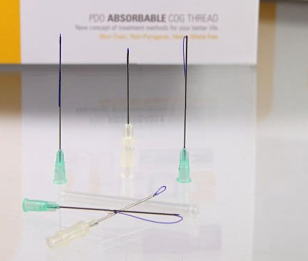
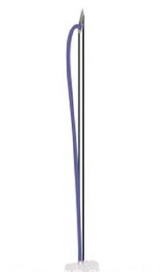
PDO Mono Thread, as shown in the pic, has no cogs or spikes along
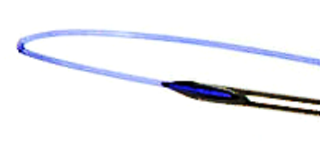
The procedure lasts for about minutes, as similar as filler injection's duration, and only deals with tiny needle points in each area. It is made of dissolvable thread that dissolves within half a year, then the activated collagen production holds the effect for a while.
Why use dissolving thread instead of permanent one? It is because permanent threads had issues when they were used in the past. Permanent threads are usually used in other surgical method without any problem in leaving them inside the human body, but since thread lifting is done with a certain amount of threads under the very shallow skin layer, they sometimes cause problems later on such as infections, abcess, stretching sensation, or maybe noticeable thread rims on skin surface.
Just one visi, basically no check-ups and no stitch removal on coming days, and if you need more pulling, you just can add some touch-ups months later.
Actual method:
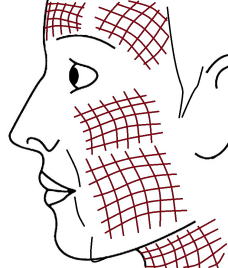 As shown in the diagram, lower cheek needs 10 to 20 threads on its side
and upper cheek 10 to 15, introducing them in a network manner to enhance tightening of the area.
As shown in the diagram, lower cheek needs 10 to 20 threads on its side
and upper cheek 10 to 15, introducing them in a network manner to enhance tightening of the area.
Forehead needs 10 to 20 threads on its side, and middle part 10 to 15.
Neck sag requires 20 to 40.
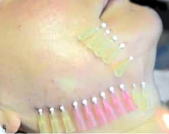
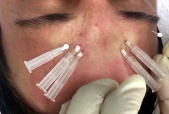
Anesthetic cream or tape is usually used. In extensive area, minute amount of local anesthetic is more comfortable.

 forehead lifting bef/aft
forehead lifting bef/aft
downtime: puffy for few days, if bruises present, need few d. to 1 wk. for recovery
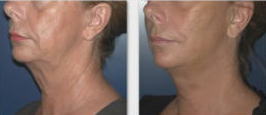
cheek&neck Silhouette Lift before/after
downtime: puffy for few days, is bruises observed, take around 1 wk. to subside
Instead of needle points, Silhouette Lift threads are introduced through bigger slits where they have to be tied together for pulling loose skin, so it requires at least 2 threads in each area.
Pricing


cheek shopping lift before/after
downtime: puffy for few days, if bruises present, need few d. to 1 wk. for recovery
PDO Mono Thead Lift is only recommended to the ones who are not willing to undergo surgery lifts or to those who just have minimal loosening. An alternative for surgery, but effect is not as good.


PDO Mono Thread, as shown in the pic, has no cogs or spikes along

The procedure lasts for about minutes, as similar as filler injection's duration, and only deals with tiny needle points in each area. It is made of dissolvable thread that dissolves within half a year, then the activated collagen production holds the effect for a while.
Why use dissolving thread instead of permanent one? It is because permanent threads had issues when they were used in the past. Permanent threads are usually used in other surgical method without any problem in leaving them inside the human body, but since thread lifting is done with a certain amount of threads under the very shallow skin layer, they sometimes cause problems later on such as infections, abcess, stretching sensation, or maybe noticeable thread rims on skin surface.
Just one visi, basically no check-ups and no stitch removal on coming days, and if you need more pulling, you just can add some touch-ups months later.
Actual method:
 As shown in the diagram, lower cheek needs 10 to 20 threads on its side
and upper cheek 10 to 15, introducing them in a network manner to enhance tightening of the area.
As shown in the diagram, lower cheek needs 10 to 20 threads on its side
and upper cheek 10 to 15, introducing them in a network manner to enhance tightening of the area.Forehead needs 10 to 20 threads on its side, and middle part 10 to 15.
Neck sag requires 20 to 40.


Anesthetic cream or tape is usually used. In extensive area, minute amount of local anesthetic is more comfortable.

 forehead lifting bef/aft
forehead lifting bef/aftdowntime: puffy for few days, if bruises present, need few d. to 1 wk. for recovery
Silhouette Lift
The latest thread lift using absorbable biocones, instead of cogs, to tighten up the skin .
cheek&neck Silhouette Lift before/after
downtime: puffy for few days, is bruises observed, take around 1 wk. to subside
Instead of needle points, Silhouette Lift threads are introduced through bigger slits where they have to be tied together for pulling loose skin, so it requires at least 2 threads in each area.
Pricing
| without tax | with tax | ||
| N-COG | 1 thread | \20000 | \22000 |
| PDO Mono Thread | 10 threads(trial) | \30000 | \33000 |
| 20 | \50000 | \55000 | |
| 40 | \80000 | \88000 | |
| 60 | \120000 | \132000 | |
| N-COG + Mono | NCOG4+Mono20 | \130000 | \143000 |
| Silhouette Lift | 1 thread | \40000 | \44000 |
 How to treat JOWLS
How to treat JOWLS
Med-Jet

The latest needle-free injector that introduces substances through skin
via an ultra-fine(0.03mm) stream of liquid.Mainly used for local anesthesia.
Pricing (10% tax not included)
| without tax | with tax | ||
| Med-Jet | \5000 | \5500 | |
Miyagi Cosmetic Surgery宮城美容外科クリニック
〒900-0016
沖縄県那覇市前島2−2−1(3F)
2-2-1-3F Maejima, Naha City
Okinawa, Japan 900-0016
TEL 098-860-9120
FAX 098-860-9176
※電話が混み合っている場合、ウェブやメールでの予約も受けております。オンライン予約はこちら
In case line is busy, please make reservations through our website or e-mail.
For online booking click here
e-mail miyagics@woody.ocn.ne.jp